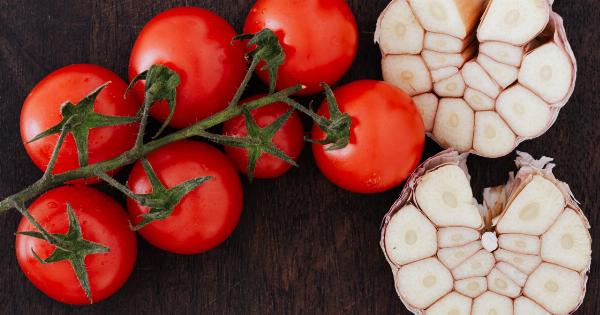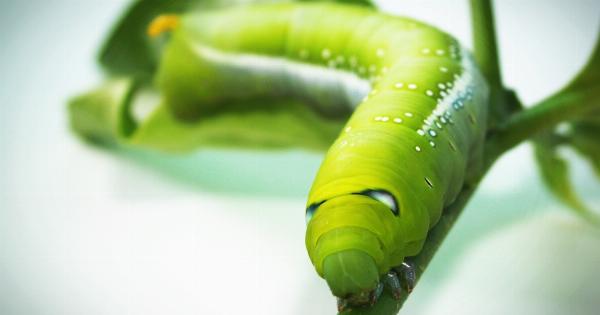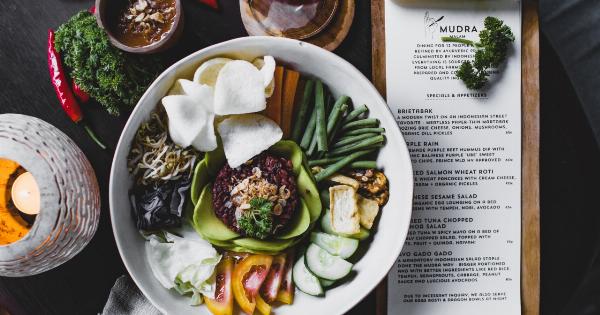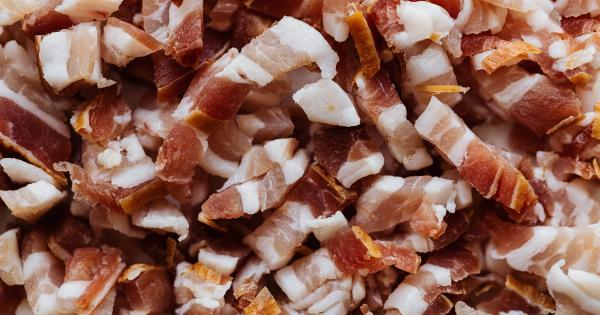Mayonnaise is a beloved condiment that adds a creamy and tangy flavor to a variety of dishes.
However, for those following a vegan lifestyle or simply looking to reduce their consumption of animal products, finding a suitable alternative can be a challenge. Fortunately, vegan mayonnaise has emerged as a flavorful and healthier option that rivals the taste and texture of traditional mayo.
In this article, we will explore the world of vegan mayonnaise and discover why it is considered even better than the real thing.
The Rise of Vegan Mayonnaise
In recent years, there has been a surge in the popularity of veganism and plant-based diets. As a result, food manufacturers have been developing an array of plant-based products to cater to this growing market.
One such product is vegan mayonnaise, which is crafted using innovative techniques and plant-based ingredients.
While traditional mayonnaise is typically made with eggs and oil, vegan mayonnaise replaces the eggs with plant-based alternatives such as aquafaba, tofu, or soy milk.
These substitutes provide the necessary emulsifying properties to create a creamy and stable texture without compromising taste.
The Creaminess and Texture of Vegan Mayonnaise
One of the key aspects that sets vegan mayonnaise apart from traditional mayo is its remarkable creaminess and smooth texture.
Despite the absence of eggs, vegan mayonnaise manages to achieve the same consistency through the use of plant-based ingredients.
Aquafaba, the liquid from cooked or canned chickpeas, is a popular choice in vegan mayonnaise recipes. It has the remarkable ability to mimic the binding properties of egg yolks, making it an excellent substitute.
When whipped, aquafaba transforms into a light and fluffy foam, creating the ideal base for mayonnaise.
Other ingredients like silken tofu or soy milk also contribute to the creamy texture of vegan mayonnaise. These plant-based alternatives blend seamlessly to deliver a smooth and velvety mouthfeel that pairs well with various dishes.
A Flavorful Alternative to Traditional Mayo
Vegan mayonnaise not only matches the texture of traditional mayo but also offers a delectable flavor profile.
By using plant-based ingredients, manufacturers are able to create an array of unique and exciting flavors that cater to different taste preferences.
While traditional mayo has a distinct eggy flavor, vegan mayonnaise can range from tangy and zesty to rich and savory.
Manufacturers often incorporate ingredients such as apple cider vinegar, lemon juice, dijon mustard, and various spices to elevate the taste. These additions provide a burst of flavor that can enhance any dish.
A Healthier Option for Everyone
Aside from being a tasty alternative to traditional mayo, vegan mayonnaise also boasts several health benefits. By eliminating eggs, vegan mayonnaise reduces the risk of foodborne illnesses like salmonella.
It is also lower in cholesterol and saturated fat, making it a heart-healthy choice for those concerned about their cardiovascular health.
In addition, several vegan mayonnaise brands use high-quality plant-based oils, such as avocado oil or olive oil, as the primary fat source.
These oils contain monounsaturated fats that are considered heart-healthy and can potentially help lower bad cholesterol levels.
The Versatility of Vegan Mayonnaise
Vegan mayonnaise’s versatility is another reason why it has gained popularity among consumers. Just like traditional mayo, it can be used in a multitude of ways to enhance the flavor and texture of various dishes.
From classic applications like spreading on sandwiches or burgers to creating creamy dressings, dips, and sauces, vegan mayonnaise can elevate any recipe.
Its smooth and creamy consistency makes it a perfect base for coleslaw, potato salad, pasta salad, and even desserts like vegan chocolate mousse.
Vegan Mayonnaise and the Environment
Choosing vegan mayonnaise over traditional mayo not only benefits personal health but also has a positive impact on the environment.
The production of eggs for traditional mayonnaise involves a high level of resource consumption and contributes to greenhouse gas emissions.
Aquafaba, one of the popular ingredients used in vegan mayonnaise, is a byproduct that is usually discarded when cooking chickpeas. By utilizing this ingredient, vegan mayonnaise helps reduce food waste and makes use of a readily available resource.
The Future of Vegan Mayonnaise
With the rise of veganism and plant-based diets, the future of vegan mayonnaise looks promising. As more people seek healthier and more sustainable food choices, the demand for cruelty-free and environmentally-friendly options will continue to grow.
Food manufacturers are constantly innovating and improving their vegan mayo recipes to deliver an exceptional product that rivals traditional mayo.
The future holds a world of possibilities for vegan mayonnaise, with new flavors and ingredient combinations just waiting to be discovered.
Conclusion
Vegan mayonnaise has emerged as a delectable and wholesome alternative to traditional mayo. Its creamy texture, delightful flavors, and health benefits make it a superior choice for vegans and non-vegans alike.
Whether you are looking to reduce your consumption of animal products, prioritize your health, or simply try something new and delicious, vegan mayonnaise offers a tasty and guilt-free option that truly surpasses the real thing.





























